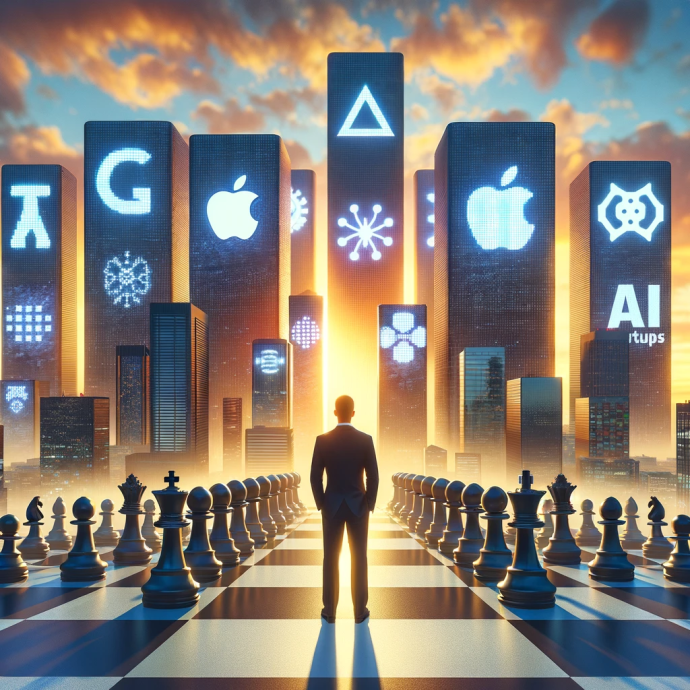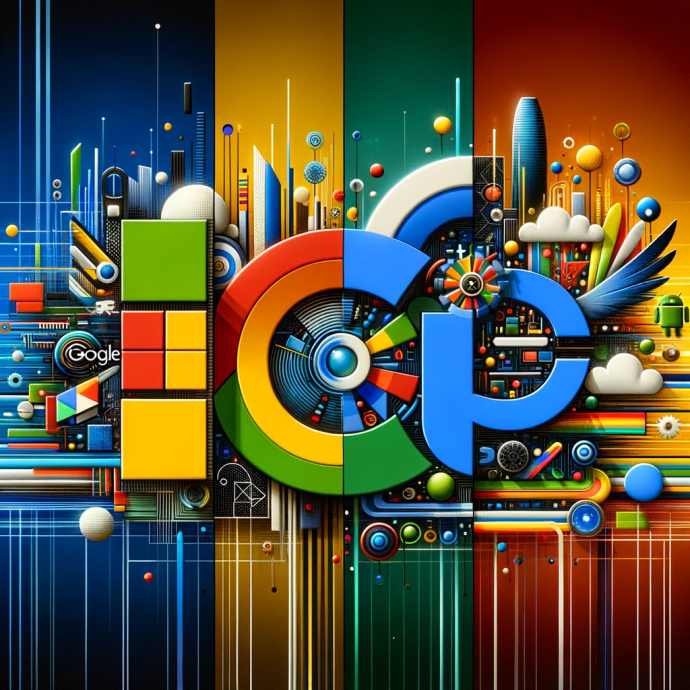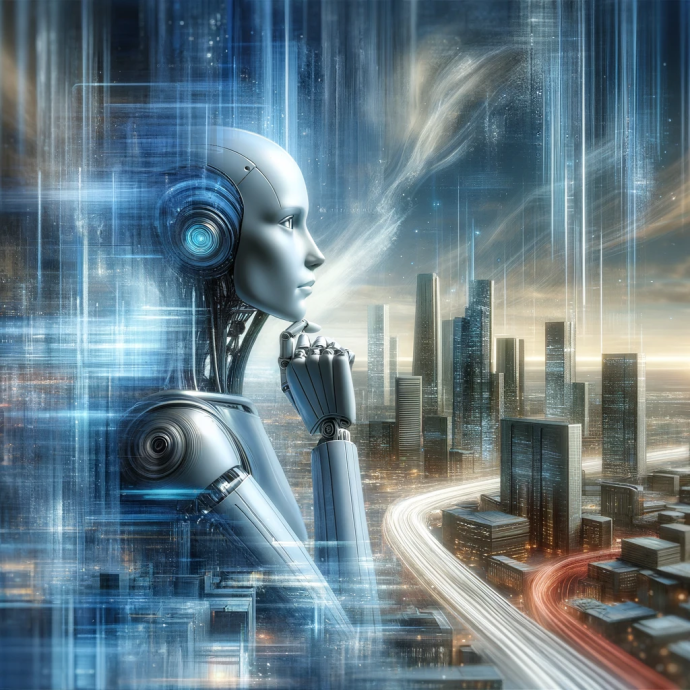Power Play in AI: How Big Tech's Dominance Shapes the Future of AI Startups

In the whirlwind of technological advancement, the realm of Artificial Intelligence (AI) stands out as a beacon of innovation and promise. The year 2021 marked a significant turn in this journey when a cadre of engineers, once part of the trailblazing OpenAI, decided to forge their own path. Disillusioned by what they perceived as OpenAI's pivot towards profit, they established Anthropic, a public-benefit corporation with a lofty mission: to steer AI towards responsible horizons.
However, this noble pursuit soon confronted a harsh reality. In an unexpected twist, Anthropic allied with Amazon in a staggering $4 billion deal. This alliance, laden with corporate undertones, casts a spotlight on a critical yet often overlooked aspect of AI development: the relentless thirst for computational power. It's a hunger that drives even the most idealistic of startups into the embrace of Big Tech behemoths like Microsoft, Google, and Amazon.
Anthropic's journey is emblematic of a broader trend in the AI landscape. Before Amazon emerged as its "primary" cloud partner, Anthropic had a dalliance with Google, dubbing it their "preferred" cloud provider in a now-edited blog post. Despite the changing language, spokespeople from both companies maintain that the relationship between Google and Anthropic remains unaltered.

The surge in AI technology is heralded as the next great revolution, poised to catapult a wave of startups into Silicon Valley's stratosphere. Yet, this burgeoning era seems to be reinforcing, rather than dismantling, the dominance of Big Tech in the internet economy. Their vast warehouses, brimming with powerful computer chips, are indispensable for training complex AI algorithms, thus granting companies like Amazon, Google, and Microsoft significant leverage over the market.
These giants' influence is not just a matter of resources; it's also about control. Amazon founder Jeff Bezos, through his ownership of The Washington Post, and Interim CEO Patty Stonesifer, with her position on Amazon's board, illustrate the intertwining of corporate power and technology.
For startups like Anthropic AI, the reality is stark: to bring their innovative AI technologies to fruition, they depend on the financial and computational muscle of Big Tech. Sarah Myers West, managing director at the AI Now Institute, underscores this dependency, noting the concentration of necessary resources in the hands of a few firms, leaving little room for an alternative path.
The task of training "generative" AI systems, such as chatbots and image generators, is a colossal undertaking. These technologies must process trillions of words and images, requiring thousands of specialized computer chips housed in energy-intensive data centers. The demand for such resources is soaring, as evidenced by the explosive growth in data center capacity in regions like Northern Virginia, a global hub for these facilities.
This dependence on Big Tech is not just a matter of infrastructure but also of market dynamics. The Federal Trade Commission, under the watchful eye of chair Lina Khan, is scrutinizing this ecosystem for signs of anti-competitive behavior. The agency's inquiry into cloud computing providers and the recent raid of Nvidia's offices by French competition authorities highlight the growing concern over the concentration of power in AI development.
Yet, there are voices of optimism. Business leaders like Matt Calkins, CEO of Appian, believe that the cost of running AI models will decrease as competition and efficiency increase. The vision is for a future where AI progress is driven not by brute force but by ingenuity and resourcefulness.

The impact of AI on the technology landscape is undeniable. The launch of ChatGPT in November 2022 sent ripples through the industry, challenging established players like Google and prompting swift responses from tech giants. But as these companies integrate AI into their products, they face their own challenges, from Bing's unexpectedly hostile chatbot to Google's Bard making basic errors.
The dominance of Big Tech in the AI arena raises profound questions about the future of innovation and competition. As AI labs like OpenAI and Anthropic navigate these waters, the uncertainty of their independence looms large. The sentiment is captured aptly by Manoj Vekaria, a software engineer in Seattle, who warns of the potential for change in leadership and direction when startups align with corporate giants.
In conclusion, the AI revolution is a complex tapestry of innovation, ambition, and power dynamics. As startups like Anthropic walk a tightrope between independence and reliance on Big Tech, the broader implications for the technology sector and society at large remain to be seen. This evolving narrative underscores the critical importance of balancing innovation with responsibility, ensuring that the AI future we build is one that benefits all.













Comments . 0